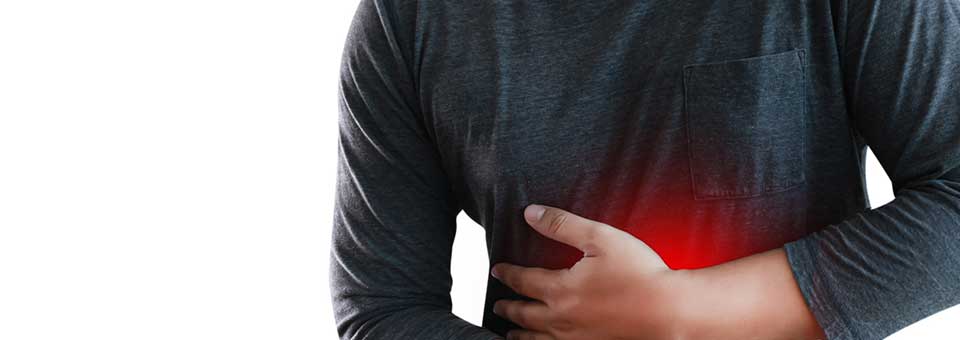The typical American diet has caused more than 60 million people in the U.S. to experience the painful burning sensation of gastroesophageal reflux disease at least once a week and, in many cases, every day.
Instead of telling people to get to the root of the problem, and switch to a Primal Meal Plan, doctors continue to dole out Big Pharma heartburn medications like candy. These Proton Pump Inhibitors (PPIs) are sold under the names Nexium, Prilosec, and Prevacid.
And doctors tell patients to take them every day to block the production of excess stomach acid. More on this in a moment.
Heartburn Is Caused By Too LITTLE Stomach Acid
I’ve warned my patients and readers to avoid these dangerous drugs for years. And it seems like the message is finally starting to get through to mainstream medicine.
New guidelines published in the Journal of Post-Acute and Long-Term Care Medicine advise doctors to stop prescribing PPIs long-term and suggest only taking them “as-needed.”1
That’s because, as I’ve been saying for years, the risks outweigh the benefits.
Brand new research has confirmed PPIs increased the risk of:2,3,4,5,6,7,8,9
- Heart attack and stroke
- Hip fractures
- Chronic kidney disease
- Dementia and Alzheimer’s
- Lung diseases
- Osteoporosis
- Liver cancer
- Iron deficiency and anemia
But here’s what doctors still don’t understand… Heartburn isn’t caused by too much stomach acid. It’s caused by too little.
You see, you NEED stomach acid to digest food and absorb nutrients. This acid also protects your digestive tract from the dangerous H. pylori bacteria linked to stomach and duodenal ulcers.
The real cause of heartburn is the inefficient closing of your lower esophageal sphincter (LES) — thanks to the overload of unnatural grains, preservatives, artificial sweeteners and other additives in our modern diet. Your body has a hard time breaking these alien ingredients down.
Your LES, a small muscle that opens and closes to allow food to move from your esophagus into your stomach, is overwhelmed. And when it doesn’t close completely, food, bile and acid flow back into your esophagus, causing painful heartburn and indigestion.
Relieve Painful Heartburn Safely and Effectively
Instead of risky PPIs, here’s what I recommend to my patients:
- Sip a Cup of Ginger Root Tea: Research shows ginger is eight times more effective than the most popular heartburn drug Prevacid.10 At the same time, it also tightens your LES to reduce the back flow of acid.
I like making a cup of ginger tea in the evenings. Add one-half teaspoon of freshly grated ginger root to a cup of hot water. Let the ginger steep for 10 minutes. Strain, add a teaspoon of honey and drink.
- Take Melatonin Before Bed: If you’re still suffering from symptoms, I suggest taking this hormone before bed. You may know melatonin as a sleep hormone, but it also helps normalize LES pressure to allow it to close more effectively.
One randomized study compared melatonin to Prilosec for GERD patients. After just 40 days, 100% of the melatonin group had a complete remission of their symptoms. But only 65.7% of the Prilosec group found relief.11
Look for a melatonin spray, drops or a sublingual that melts under your tongue. I recommend taking no more than 0.3 mg about 30 minutes before bedtime.
- Try D-limonene: In one study, 90% of people who supplemented with this orange peel extract reported complete relief of their heartburn symptoms in just two weeks. What’s more, the effect lasted for six months after they stopped taking it.12
I suggest taking 1,000 mg every other day for 20 days. Then take a maintenance dose as needed.
[i] Dharmarajan T. “The use and misuse of proton pump inhibitors: and opportuning for de-prescribing.” 2020. 22(1)15-22.
[ii] Ariel H and Cooke J. “Cardiovascular risk of proton pump inhibitors.” Methodist Debakey Cardiovasc J. 2019 Jul-Sep; 15(3): 214–219.
[iii] Seng Thong B, et al. “Proton pump inhibitors and fracture risk: a review of current evidence and mechanisms involved.” Int J Environ Res Public Health. 2019 May; 16(9): 1571.
[iv] Hart E, et al. “Proton pump inhibitors and risk of acute and chronic kidney disease: a retrospective cohort study.” Pharmacotherapy. 2019 Apr;39(4):443-453.
[v] Li M, et al. “Proton pump inhibitor use and risk of dementia.” Medicine (Baltimore). 2019 Feb; 98(7): e14422.
[vi] Panser K. “Proton pump inhibitors and COVID-19.” https://www.uspharmacist.com/article/proton-pump-inhibitors-and-covid19
[vii] Seng Thong B, et al. “Proton pump inhibitors and fracture risk: a review of current evidence and mechanisms involved.” Int J Environ Res Public Health. 2019 May; 16(9): 1571.
[viii] Song H, et al. “Proton pump inhibitors and risk of liver cancer and mortality in patients with chronic liver disease: a systematic review and meta-analysis.” Eur J Clin Pharmacol. 2020 Jun;76(6):851-866.
[ix] “Iron deficiency anemia from iron malabsorption caused by proton pump inhibitors.” 2020. Blood. 134(1):962.
[x] Siddaraju MN, Dharmesh SM. “Inhibition of gastric H+, K+-ATPase and Helicobacter pylori growth by phenolic antioxidants of Zingiber officinale. Mol Nutr Food Res. 2007 Mar.
[xi] de Souza Pereira R. “Regression of gastroesophageal reflux disease symptoms using dietary supplementation with melatonin, vitamins and aminoacids: comparison with omeprazole.” J Pineal Res. 2006;41(3):195-200.
[xii] Willette RC, et al. “Purified d-limonene: An effective agent for the relief of occasional symptoms of heartburn. Proprietary study.” WRC Laboratories, Inc. Galveston, TX.

